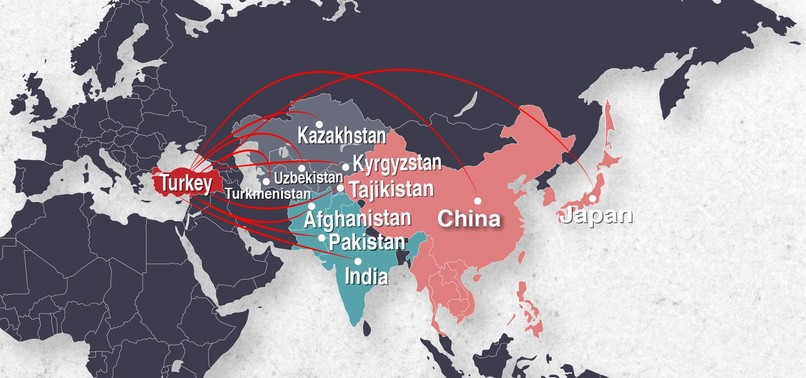
In terms of its foreign policy, Turkey is passing through a new door step during this period. Turkish foreign policy which placed itself along the same line of its traditional partners such as Europe and the U.S. in the multipolar world order, has attempted to diversify especially after the Turgut Özal period. This diversity, which does not constitute an alternative for each other, aims to increase Turkey’s cooperation opportunities with its near abroad through regional politics.
In fact, Foreign Minister Mevlüt Çavuşoğlu declared the “Asia Anew” initiative as a new vision of Turkey at the Ambassadors’ Conference in Ankara on 3-9 August. Even though the Asia Anew initiative was interpreted as a new policy in the media, it is actually not such a new policy for Turkey. As the Foreign Minister remarked at the “Asia Anew Workshop” in Ankara on December 2019, reassessment of new opportunities that have occurred in light of the progress made in the last 20-30 years between Turkey and Asian counties underlies this policy.
As is known, Turkey was among the first countries to recognize the newly independent countries in the Caucasus and Central Asia which are mostly Turkish speaking countries after the collapse of Soviet Union in 1991. When the nature of the relations with these countries was being decided, comments following the collapse of the unipolar world order such as “Turkey has lost its function in the NATO” were effective, and Turkey accepted its multi-regional identity as a foreign policy input.[1] In this framework, high level visits were paid to the countries that have newly achieved independence in the region and over 140 bilateral agreements were signed between Turkey and Central Asian countries during the period until 1993.[2]
Progress could not be attained to the expected extent due to the realities in the region in the 1990’s and EU membership being placed at the forefront in Turkey’s agenda. Nevertheless, Turkey continued to support Central Asian countries and helped them to become members of the Economic Cooperation Organization (ECO), Organization for Security and Co-operation in Europe (OSCE), and United Nations.
Turkey has maintained its contact with Central Asian countries with the Presidential Summit that began in 1992. In 1992, the Turkish Cooperation and Coordination Agency (TİKA) was established especially to make use of new cooperation opportunities with the Turkic Republics in the Central Asia and Caucasus.
Despite that cooperation with the Turkic World had not been at the top of the parties’ foreign policy agendas until the mid-2000’s, the objective of increasing cooperation with the Turkic Republics has risen to the forefront once again with the changing, globalizing, and institutionalizing world order. With this aim, several international entities were established with the help of existing dialogue channels.
Multilateral Organizations in Turkic World
International Organization of Turkic Culture (TÜRKSOY)
The International Organization of Turkic Culture (TÜRKSOY), which is based in Ankara and is called as the UNESCO of Turkic World, was established in 1993. Azerbaijan, Kazakhstan, Kyrgyztan, Uzbekistan, Turkmenistan, and Turkey are the founding members of TÜRKSOY and the Turkish Republic of Northern Cyprus and the autonomous republics of the Russian Federation; Tatarstan, Bashkortostan, Altai, Sakha, Tyva and Khakassia as well as the Autonomous Territorial Unit of Gagauzia (Moldova) joined TURKSOY as member states with an observer status.[3] TÜRKSOY has aims such as developing cooperation in the fields of science, education, culture and art between parties, introducing common values of the Turkic world to the masses at the international level, deepening cultural ties between Turkish speaking countries.[4]
Parliamentary Assembly of Turkic Speaking Countries (TÜRKPA)
TÜRKPA, which aims to improve political dialogue among countries with the help of parliamentary diplomacy tools[5], was established in 2008 with the İstanbul Agreement.[6] The chairmanship of this organization based in Baku is conducted through a rotational system. General Assembly meetings have been held at the level of the Heads of Assemblies every year since 2009. TÜRKPA conducts its activities with 4 separate sub-committees named Legal Affairs and International Relations, Socio-Cultural and Humanitarian Affairs, Economic Cooperation, and Environment and Natural Resources; and it carries out studies on strategically important issues between the parties.
At the meetings of the Commission on Legal Affairs and International Relations, some issues as harmonization of legislation and bylaws of parliaments, legal cooperation on counter terrorism and informatics, and cooperation with other international organizations were reviewed.
At the meeting of the Commission on Socio-Cultural and Humanitarian Affairs, issues such as cinema and animation, cooperation opportunities between member states against natural disasters, information exchange between member states, improvement of Turkish language and common terminology were reviewed within the framework of Turkish Cultural heritage.
When the subjects that were reviewed at the meetings of Commission on Economic Cooperation held up to date are analyzed, it is seen that studies are carried out on opportunities and investments in the fields of entrepreneurship, diversification of the economy, development of the energy sector, carriage and transportation in the member countries.
Finally, it is seen that issues such as alternative energy sources were also discussed at the meetings of the Commission on Environment and Natural Resources.
Therefore, TÜRKPA serves to minimize the situations that may lead to differences in the practices of member countries by bringing together the legal and institutional structures of the member states. As a matter of fact, at the latest TÜRKPA 8th General Meeting, Kazakhstan Parliament Speaker Nurlan Nigmatulin stated that TÜRKPA activities positively influenced the development of cooperation between Turkish speaking countries and provided great benefits[7].
Turkic Council
Five years after the seventh Heads of State Summit in 2001, in 2006, it recommenced with Turkey's initiatives, and thus in 2009, the Turkish Council has emerged as an umbrella organization. According to the founding treaty of the Turkic Council signed in 2009, the Nakhchivan Treaty, the aim of this organization is to develop cooperation in the fields of politics, economy, trade, energy and transportation in line with common interests; moreover, it carries out studies within the framework of common history, language, culture and identity. In addition to its secretariat, the Turkic Council has formed sub-bodies in the form of the Presidents' Council, the Council of Foreign Ministers, the Council of Elders, and the Senior Officials Committee. Besides the founding members of Azerbaijan, Kazakhstan, Kyrgyzstan and Turkey, Uzbekistan joined the Turkic Council on October 2019. While Hungary is an observer member, it is also considered that she will join the Turkic Council in the future. In fact, towards the end of 2019, the Turkic Council's European Office was opened in Budapest, the capital of Hungary in Europe.
At the same time, the Turkic Council has become a framework for existing cooperation mechanisms such as the Parliamentary Assembly of Turkic Speaking Countries (TÜRKPA), the Turkish Business Council, the Turkish Academy and the International Organization of Turkic Culture (TURKSOY)[8].
Turkish Academy
The International Turkish Academy was established in Astana in 2010 with the recommendation of former President of Kazakhstan Nursultan Nazarbayev. Until 2012, it operated as a national institution of the Republic of Kazakhstan. In 2012, the Turkic Council Summit in Bishkek, it achieved an international structure with the voluntary initiatives of Azerbaijan, Kazakhstan, Kyrgyzstan and Turkey[9]. The Turkish Academy, located in Astana, aims to coordinate and support scientific research in the fields of Turkish language, literature, culture, history and ethnography. The Turkish Academy also aims to make Turks' contributions to world civilization visible by conducting research on the cultural and spiritual heritage of Turkish peoples[10].
Turkic Business Council
The founding document was signed in 2011. It is expected that it will play an important role in the studies carried out by the Turkic Council in order to bring economic cooperation forward by uniting the private sector organizations of the four countries. The Chamber Presidents of the Turkic Council Member States meet once a year under the umbrella of the Turkish Business Council. In this framework, the Fifth Meeting of the Turkish Business Council was held in Astana, hosted by "Atameken", on 3 April 2017, and it was agreed that the Secretariat of the Turkish Business Council will be established in Istanbul[11].
Opportunities and Challenges
Material and moral connections between Turkey and Central Asian and Caucasian countries has been strengthening day by day. Since 1992, the period of institutionalization in the relations which has been growing slowly but steadily is gaining momentum with the newly occurred global opportunities. Since 1992, the EU has been carrying out the Europe-Caucasus-Asia Transport Corridor (TRACECA) project for the region. Although this project was named as the revival of the historical Silk Road, a route has not been determined yet. As a matter of fact, when Chinese President Xi Jinping announced the One Belt One Road project in 2013, unlike TRACECA, he announced the routes of the project. Both projects have opened an important door of opportunity for the countries of Central Asia and Turkey. The diversification of the economies of Central Asian countries is intriguing in terms of their goods and services reaching Europe. Turkey is the point of intersection of the land transport routes that connects the two continents and is included as a participant in both projects.
However, there are some difficulties in ensuring the security of transportation and energy routes in the Central Asian region. There are issues such as frozen conflicts, border disputes and unresolved problems between some countries in the region. Although there is no active policy of the Turkish Council or other Turkish world platforms on these issues, it is likely that the works will come to the fore as a mechanism for a possible solution in the future. It can be thought that the solution of the problems can be realized with the mutual cooperation and trust building of all international organizations and regional states.
Another important issue of the region is that infrastructure problems are being experienced in many countries. Turkey is trying to transfer its experience and knowledge to the countries of the region to solve these problems through TÜRKPA and TİKA. There are projects carried out by TİKA in many Central Asian countries, especially in the fields of agriculture and good governance.
In lieu of conclusion
The international institutionalization between Turkey, Caucasus and Central Asia is still in a development process. Since the mid-2000s, the strengthening of the ties between Turkey and countries in the region has become systematical via these institutions. Such institutional structuring has an important place in terms of current collaborations and opportunities that may arise in the future. It is thought that these institutions can be extremely useful in terms of bringing an injecting enthusiasm to the politics and trade that have been shaped between Russia and China in the region so far.
Especially the Turkic Council European Office that has opened in Budapest shows that the willingness to increase the level of cooperation between the Turkish World and Europe is high.
Photo: ANews.com
[1] Gün Kut, “Türk Dış Politikasında Çok Yönlülüğün Yakın Tarihi: Soğuk Savaş Sonrası Devamlılık Ve Değişim,” TUSIAD, 2010, http://www.dispolitikaforumu.com/wp-content/uploads/2019/03/TurkDisPolitikasındaCokYonlulugunTarihi.pdf.
[2] Fatih Yalçınkaya, “Türkiye ile Orta Asya Devletleri Arasındaki Siyasi ve Diplomatik İlişkiler-Hükümetler üstü Kuruluşlar (1992-2010),” Elektronik Siyaset Bilimi Araştırmaları Dergisi, June 2010, http://www.acarindex.com/dosyalar/makale/acarindex-1423878776.pdf.
[3] “Türksoy Hakkında,” Türksoy, Accessed 21 Ocak 2020, https://www.turksoy.org/tr/turksoy/about.
[4] “TÜRK KONSEYİ (Türk Dili Konuşan Ülkeler İşbirliği Konseyi),” T.C. Dışişleri Bakanlığı, Accessed 21 January 2020, http://www.mfa.gov.tr/turk-konseyi.tr.mfa.
[5] “Faaliyetler,” Türk Dili Konuşan Ülkeler Parlamenter Asamblesi, Accessed 21 January 2020, https://turk-pa.org/tr/content/about_turkpa/activities.
[6] “Tarihçe,” Türk Dili Konuşan Ülkeler Parlamenter Asamblesi, Accessed 21 January 2020, https://turk-pa.org/tr/content/about_turkpa/history.
[7] “TÜRKPA 8. Genel Kurulu,” Türk Dili Konuşan Ülkeler Parlamenter Asamblesi, Accessed 21 January 2020, https://turk-pa.org/tr/content/faaliyetler/plsessions/viii_genel_kurul/1731_trkpa_8_genel_kurulu.
[8] “TÜRK KONSEYİ (Türk Dili Konuşan Ülkeler İşbirliği Konseyi),” T.C. Dışişleri Bakanlığı, Accessed 21 January 2020, http://www.mfa.gov.tr/turk-konseyi.tr.mfa.
[9] “Akademi hakkında,” Uluslararası Türk Akademisi, Accessed 21 January 2020, http://twesco.org/tr/академия-туралы/.
[10] “TÜRK KONSEYİ (Türk Dili Konuşan Ülkeler İşbirliği Konseyi),” T.C. Dışişleri Bakanlığı, Accessed 21 January 2020, http://www.mfa.gov.tr/turk-konseyi.tr.mfa.
[11] “TÜRK KONSEYİ (Türk Dili Konuşan Ülkeler İşbirliği Konseyi),” T.C. Dışişleri Bakanlığı, Accessed 21 January 2020, http://www.mfa.gov.tr/turk-konseyi.tr.mfa.
© 2009-2025 Center for Eurasian Studies (AVİM) All Rights Reserved
No comments yet.
-
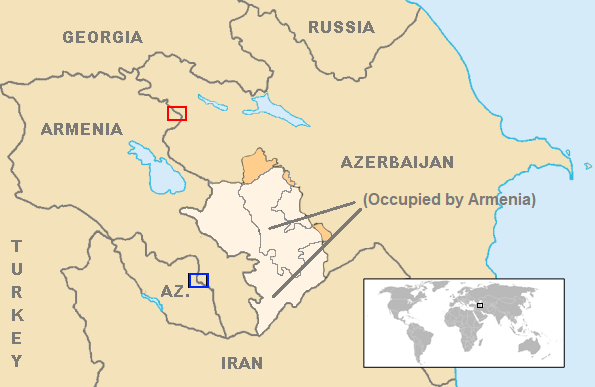 FROM POINT SHOTS TO ARMED CONFLICT: HOW DID AZERBAIJAN-ARMENIA REACH THE BRINK OF WAR?
FROM POINT SHOTS TO ARMED CONFLICT: HOW DID AZERBAIJAN-ARMENIA REACH THE BRINK OF WAR?
Tutku DİLAVER 14.08.2020 -
IGNORED DANGER: MEDZAMOR NUCLEAR POWER PLANT
Tutku DİLAVER 19.12.2018 -
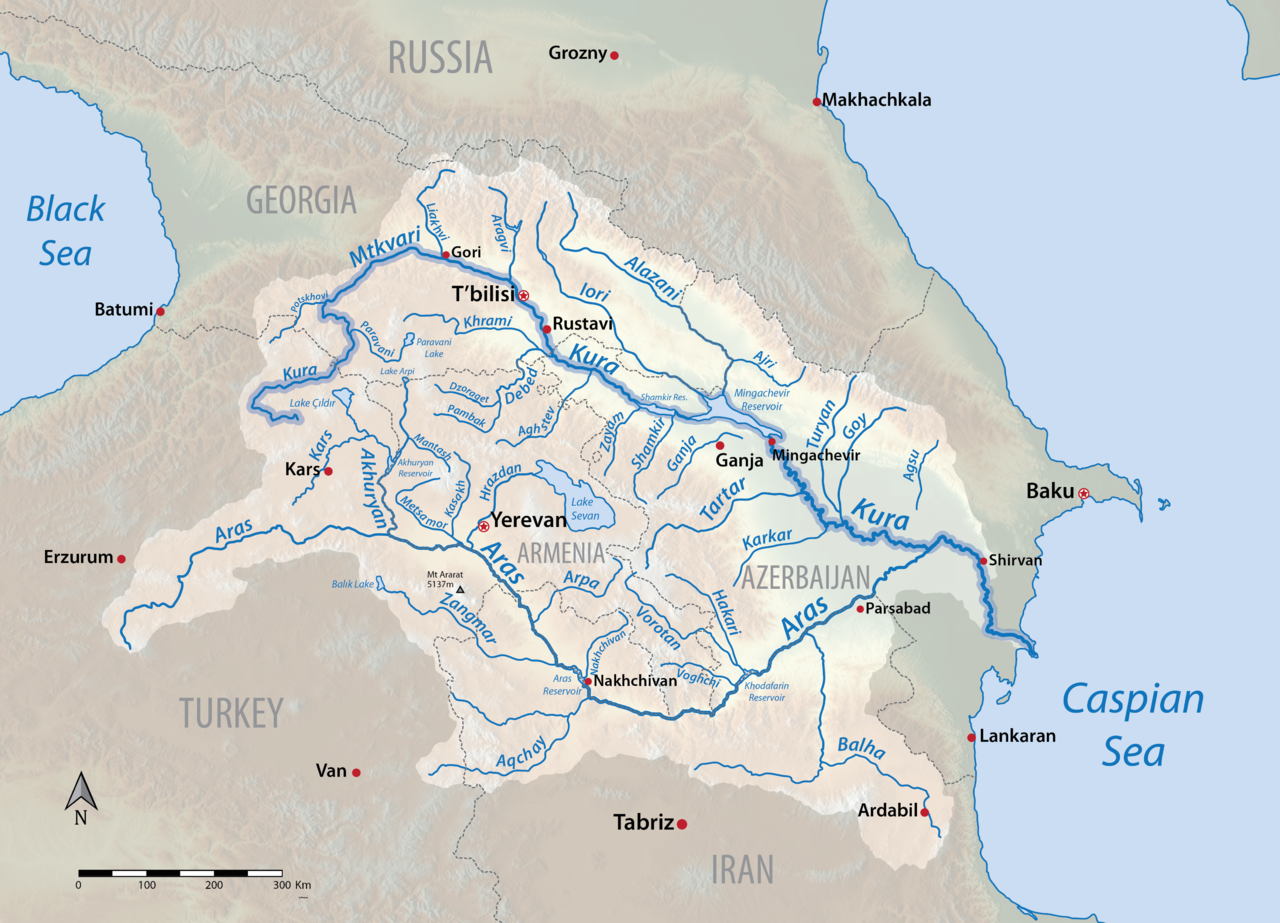 HYDROPOLITICS, TRANSBOUNDARY RIVERS, AND THE SOUTH CAUCASUS
HYDROPOLITICS, TRANSBOUNDARY RIVERS, AND THE SOUTH CAUCASUS
Tutku DİLAVER 11.04.2022 -
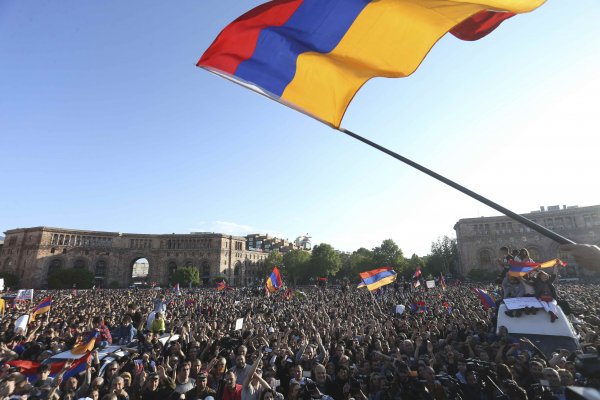 THE RULE STARTED WITH DEMONSTRATIONS ENDED WITH DEMONSTRATIONS
THE RULE STARTED WITH DEMONSTRATIONS ENDED WITH DEMONSTRATIONS
Tutku DİLAVER 14.05.2018 -
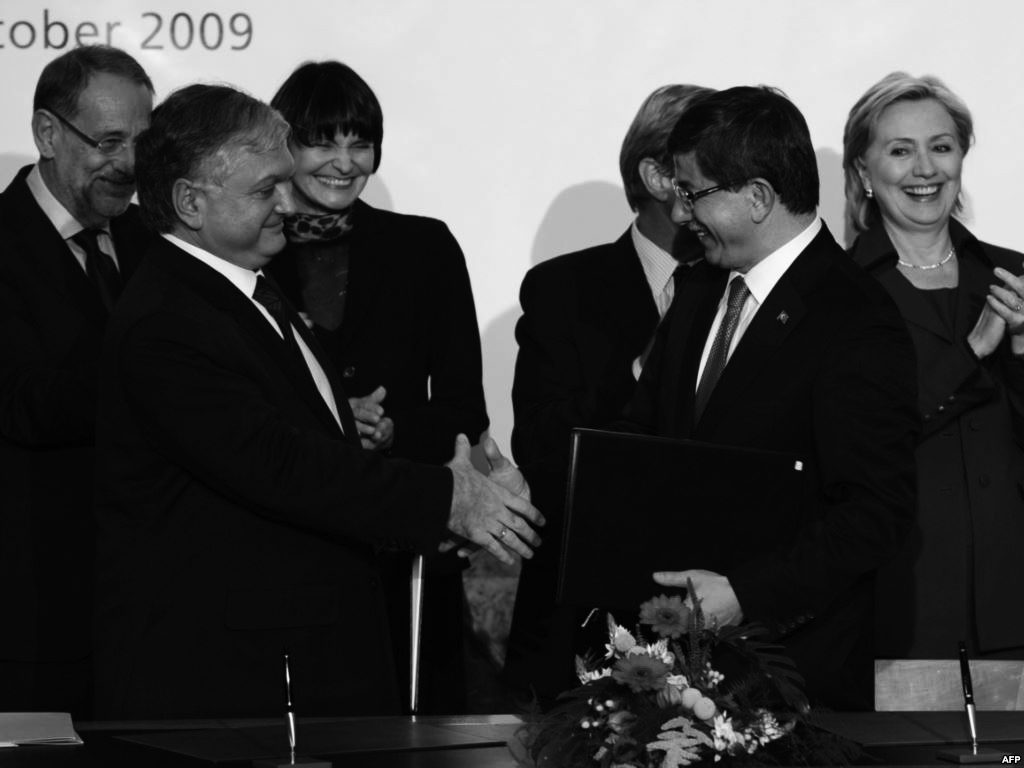 FROM THE DRAWERS OF ANKARA TO THE DUSTY SHELVES OF ARMENIA: ZURICH PROTOCOLS
FROM THE DRAWERS OF ANKARA TO THE DUSTY SHELVES OF ARMENIA: ZURICH PROTOCOLS
Tutku DİLAVER 16.03.2018
-
 TURKIYE-CHINA RELATIONS: OPPORTUNITIES AND CHALLENGES
TURKIYE-CHINA RELATIONS: OPPORTUNITIES AND CHALLENGES
Seyda Nur OSMANLI 22.11.2024 -
 TIRANA SUMMIT MIDST MULTIPLE PROCESSES: A CONFUSED EUROPEAN UNION IN THE BALKANS
TIRANA SUMMIT MIDST MULTIPLE PROCESSES: A CONFUSED EUROPEAN UNION IN THE BALKANS
Teoman Ertuğrul TULUN 14.12.2022 -
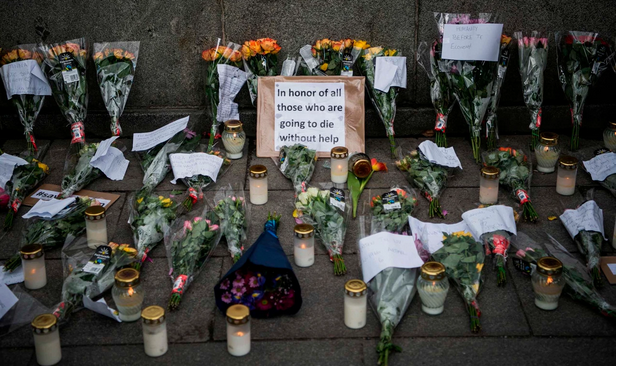 SWEDEN’S CORONAVIRUS FIGHT STRATEGY AND BITTER MEMORIES OF PAST EUGENIC PRACTICES
SWEDEN’S CORONAVIRUS FIGHT STRATEGY AND BITTER MEMORIES OF PAST EUGENIC PRACTICES
Teoman Ertuğrul TULUN 04.05.2020 -
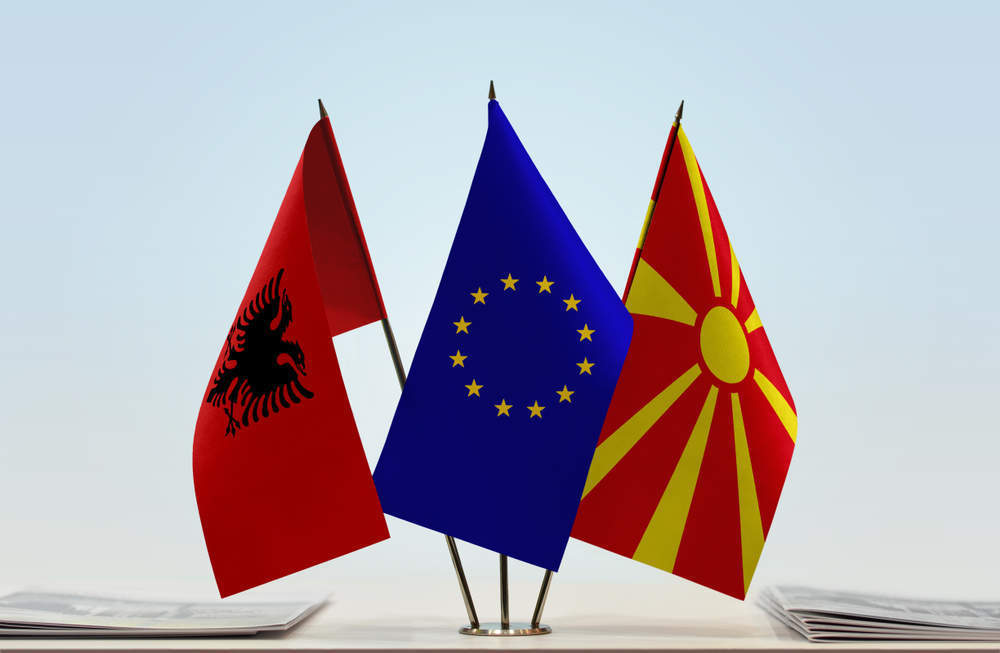 FRANCE AND GREECE HAVE FINALLY AGREED: EU ACCESSION TALKS BEGIN WITH ALBANIA AND NORTH MACEDONIA
FRANCE AND GREECE HAVE FINALLY AGREED: EU ACCESSION TALKS BEGIN WITH ALBANIA AND NORTH MACEDONIA
Teoman Ertuğrul TULUN 08.04.2020 -
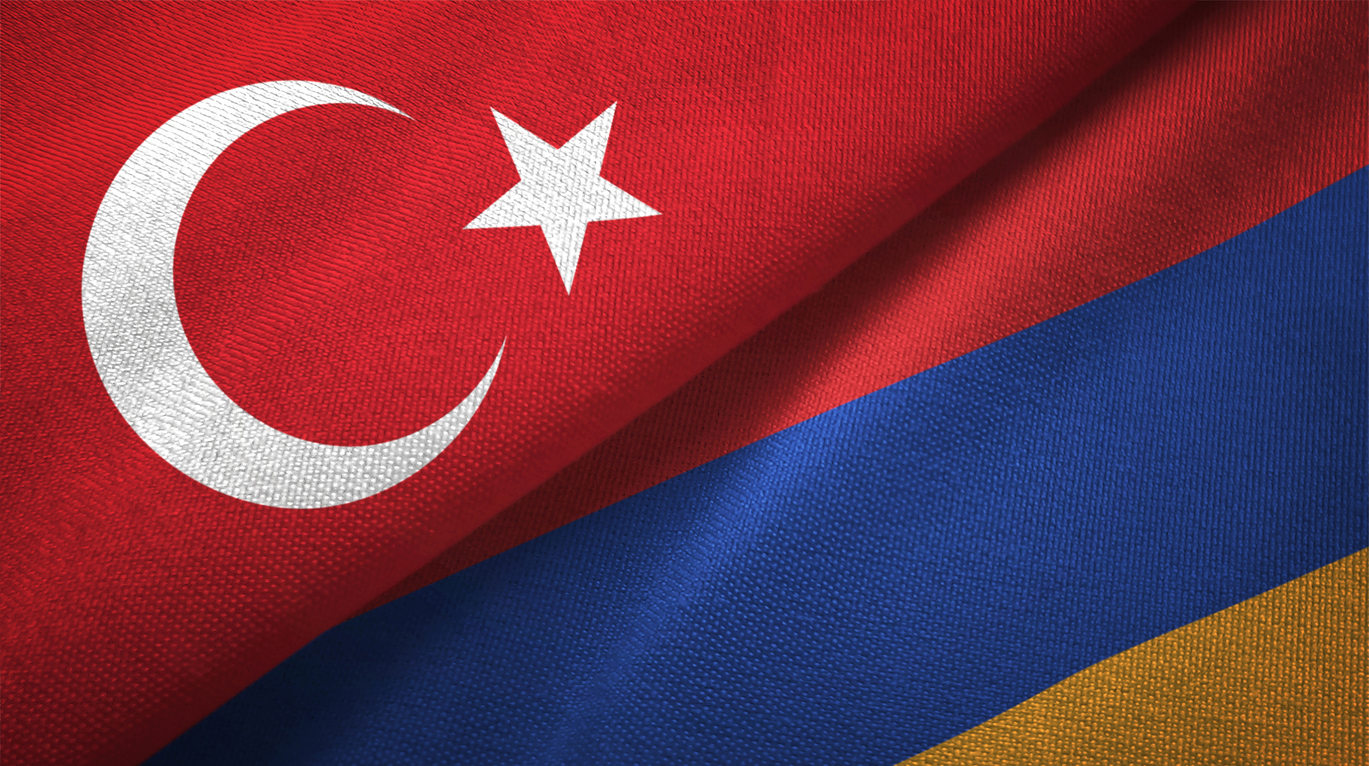 ATTEMPTS TO UNDERMINE THE NORMALIZATION PROCESS OF TÜRKİYE - ARMENIA RELATIONS
ATTEMPTS TO UNDERMINE THE NORMALIZATION PROCESS OF TÜRKİYE - ARMENIA RELATIONS
Hazel ÇAĞAN ELBİR 29.12.2022
-
25.01.2016
THE ARMENIAN QUESTION - BASIC KNOWLEDGE AND DOCUMENTATION -
12.06.2024
THE TRUTH WILL OUT -
27.03.2023
RADİKAL ERMENİ UNSURLARCA GERÇEKLEŞTİRİLEN MEZALİMLER VE VANDALİZM -
17.03.2023
PATRIOTISM PERVERTED -
23.02.2023
MEN ARE LIKE THAT -
03.02.2023
BAKÜ-TİFLİS-CEYHAN BORU HATTININ YAŞANAN TARİHİ -
16.12.2022
INTERNATIONAL SCHOLARS ON THE EVENTS OF 1915 -
07.12.2022
FAKE PHOTOS AND THE ARMENIAN PROPAGANDA -
07.12.2022
ERMENİ PROPAGANDASI VE SAHTE RESİMLER -
01.01.2022
A Letter From Japan - Strategically Mum: The Silence of the Armenians -
01.01.2022
Japonya'dan Bir Mektup - Stratejik Suskunluk: Ermenilerin Sessizliği -
03.06.2020
Anastas Mikoyan: Confessions of an Armenian Bolshevik -
08.04.2020
Sovyet Sonrası Ukrayna’da Devlet, Toplum ve Siyaset - Değişen Dinamikler, Dönüşen Kimlikler -
12.06.2018
Ermeni Sorunuyla İlgili İngiliz Belgeleri (1912-1923) - British Documents on Armenian Question (1912-1923) -
02.12.2016
Turkish-Russian Academics: A Historical Study on the Caucasus -
01.07.2016
Gürcistan'daki Müslüman Topluluklar: Azınlık Hakları, Kimlik, Siyaset -
10.03.2016
Armenian Diaspora: Diaspora, State and the Imagination of the Republic of Armenia -
24.01.2016
ERMENİ SORUNU - TEMEL BİLGİ VE BELGELER (2. BASKI)
-
AVİM Conference Hall 24.01.2023
CONFERENCE TITLED “HUNGARY’S PERSPECTIVES ON THE TURKIC WORLD"









